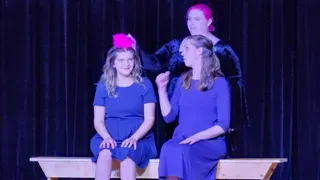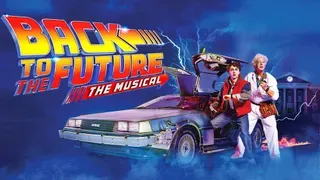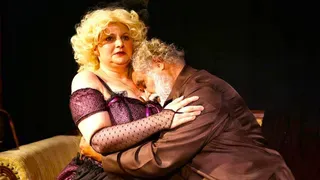December 9, 2012
Booker's Place: A Mississippi Story
Kilian Melloy READ TIME: 2 MIN.
Frank De Felitta's 1966 documentary "Mississippi: A Portrait" delved into the political and social cauldron of race relations in that state, and featured a brief, but piercing, interview with a waiter at a whites-only club named Booker Wright in the small town of Greenwood. Wright's testimony about the degradation he faced on a daily basis at the hands of whites shattered the delusional myth that Greenwood's leaders and citizens had clung to, and may have led to Wright's murder seven years later.
De Felitta's son Raymond followed in his fathers footsteps, becoming a successful filmmaker. Now Raymond De Felitta revisits Greenwood, Mississippi, and his father's long-unseen documentary, and uncovers the way that Wright's legacy resounds to this day -- as well as how racial progress in Greenwood has, and has not, advanced in the four decades since Wright was killed by a blast from a sawed-off shotgun.
The new film features clips from the original, as well as interviews with Wright's children and grandchildren, community leaders, and the elder De Felitta, who admits to feeling responsible for what happened to Wright.
Most compelling is the portrait that emerges of Wright himself: A man who valued education, became an entrepreneur for his own community, and knew the kind of trouble he was inviting onto himself but bravely spoke out anyway.
The special features include a two-minute interview with Raymond De Felitta, a 20-minute documentary by Ed Emshwiller titled "The Streets of Greenwood," which had been made in 1962, and deleted scenes.
The deleted scenes carry considerable impact, giving us a fuller picture of Wright's granddaughter Yvette (herself on a quest to fill in the blanks about Booker), bringing to light chilling details around the production of the new film (a state senator's car was riddled with bullets after he met with Raymond De Felitta), and, at one juncture, a pointed comparison between the white supremacist rhetoric that characterized the 1960s and the anti-gay rhetoric that fills the media now. (As with some of today's most virulent homophobia, the fear of racial equality seemingly centered around a primal terror of people entering into the "wrong" kinds of marriages.)
Anyone with even a passing interest in the history of the civil rights struggle and race relations in America will want to pick up this DVD and savor both its historical value and the light it shines on our contemporary version of the fight for equality.
Kilian Melloy serves as EDGE Media Network's Associate Arts Editor and Staff Contributor. His professional memberships include the National Lesbian & Gay Journalists Association, the Boston Online Film Critics Association, The Gay and Lesbian Entertainment Critics Association, and the Boston Theater Critics Association's Elliot Norton Awards Committee.







